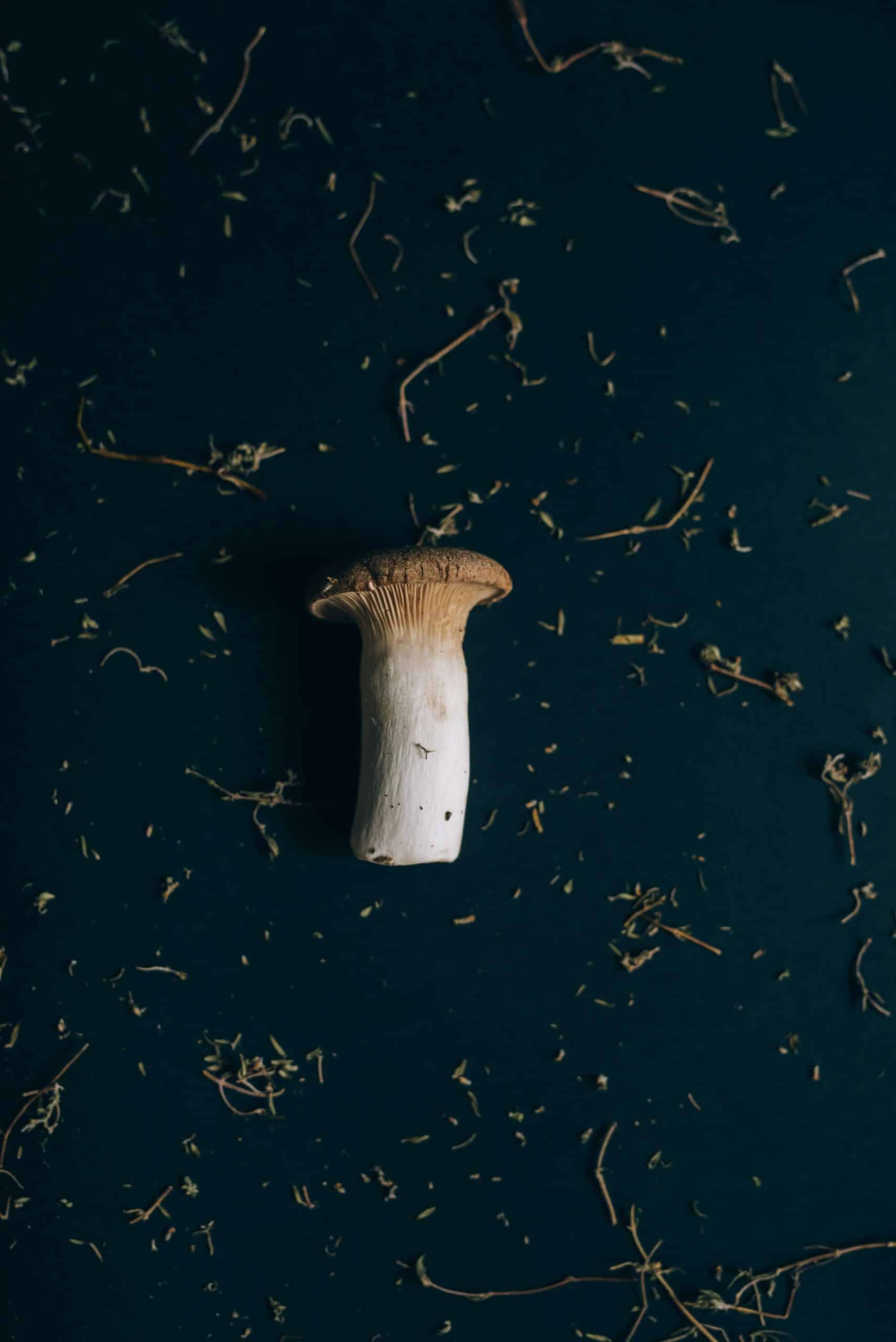Maintaining a healthy coat and skin is essential for a dog's overall well-being and happiness. Believe it or not, the secret lies in their diet. The food you provide for your furry friend plays a pivotal role in determining the condition of their coat and skin. A nutrient-rich diet can promote a shiny and lustrous coat, while poor nutritional choices can lead to dullness, itching, and other skin issues. In this article, we will explore the direct correlation between a dog's diet and the health of their coat and skin, shedding light on the importance of making informed dietary choices for your beloved pet.

This image is property of images.pexels.com.
Introduction
The importance of diet for a dog's overall health
When it comes to taking care of your furry friend, ensuring that they have a healthy and balanced diet is absolutely crucial. A dog's diet has a significant impact on their overall health, including their coat and skin. Just like humans, dogs require specific nutrients to maintain a lustrous coat and healthy skin. By providing them with the right combination of nutrients, you can help support their coat and skin health from the inside out.
The connection between diet and coat/skin health
You may wonder how exactly a dog's diet can affect their coat and skin health. Well, the answer lies in the nutrients that their bodies need to maintain and produce healthy skin cells and promote the growth of a shiny, resilient coat. Nutrients such as protein, essential fatty acids, vitamins, minerals, and antioxidants play essential roles in nourishing the skin and supporting coat health. By understanding the importance of these nutrients and incorporating them into your dog's diet, you can help them achieve a vibrant and healthy coat.
Nutrients for a Healthy Coat and Skin
Protein
Protein is a vital nutrient for not only muscle development and repair but also for maintaining a healthy coat and skin. It is responsible for supporting the growth of hair follicles and promoting healthy hair growth. The quality and bioavailability of the protein in your dog's diet play a crucial role in their coat health. High-quality protein sources, such as lean meats and fish, provide the amino acids required for strong and resilient hair.
Essential fatty acids
Essential fatty acids, particularly omega-3 and omega-6 fatty acids, are essential for maintaining healthy coat and skin. These fatty acids support the skin's barrier function, keeping it hydrated, supple, and preventing excessive dryness or flakiness. Omega-3 fatty acids also have anti-inflammatory properties, helping to soothe any skin irritations or inflammations. Including sources like fish oil, flaxseed, and chia seeds in your dog's diet can ensure an adequate intake of essential fatty acids.
Vitamins
Vitamins are vital for various bodily functions, including maintaining a healthy coat and skin. Vitamin A is necessary for cell growth and differentiation in the skin, while vitamin E acts as a powerful antioxidant, protecting the skin cells from damage. The vitamin B complex, which includes biotin, niacin, and pantothenic acid, supports healthy skin and coat maintenance. Including foods rich in these vitamins, such as carrots, leafy greens, and eggs, can contribute to a healthy coat and skin.
Minerals
Minerals play a key role in maintaining a healthy coat and skin. Zinc supports cell reproduction and repair, making it crucial for skin health and coat growth. Copper helps in the formation of collagen and elastin, which are essential for skin elasticity and coat strength. Iron is necessary for adequate oxygenation of the tissues, including the skin and hair follicles. Selenium contributes to the antioxidant defense system, protecting the skin and coat cells from damage. Including mineral-rich foods like beef, liver, and pumpkin seeds in your dog's diet can ensure a balanced intake of these minerals.
Antioxidants
Antioxidants are essential for neutralizing harmful free radicals that can damage the skin and coat cells. They help combat oxidative stress and inflammation, promoting a healthy, vibrant coat. Common antioxidant-rich ingredients found in dog food include blueberries, cranberries, and spinach. By incorporating these ingredients into your dog's diet, you can provide them with the necessary antioxidants for optimal coat and skin health.
Protein for Coat and Skin Health
The role of protein in promoting healthy hair growth
Protein is the building block of hair, and without an adequate intake, dogs may experience hair loss, weak hair follicles, and a dull coat. Protein is essential for promoting healthy hair growth by providing the necessary amino acids for cell division and the production of keratin. Keratin is a protein that makes up the structure of hair, and a deficiency can result in hair breakage and a lackluster coat. Ensuring your dog's diet includes quality protein sources helps nourish their hair follicles and supports a strong and shiny coat.
Recommended protein sources for dogs
When it comes to selecting protein sources for your furry friend, opt for lean meats like chicken, turkey, and fish. These sources are not only rich in protein but also contain essential fatty acids, which further contribute to coat and skin health. Additionally, eggs and dairy products can be included as protein sources. However, it is essential to be mindful of your dog's individual dietary needs and any specific allergies or sensitivities they may have.
Protein quality and bioavailability
While protein quantity is indeed important, the quality and bioavailability of the protein are equally crucial for optimal coat and skin health. High-quality protein sources are rich in essential amino acids, which are readily absorbed and utilized by your dog's body. Animal-based protein sources, such as meat and fish, are considered to have higher bioavailability compared to plant-based protein sources. Opting for a dog food that contains animal-based proteins ensures that your furry friend obtains the necessary amino acids to support a healthy coat and skin.
Essential Fatty Acids for Coat and Skin Health
Omega-3 fatty acids
Omega-3 fatty acids, such as EPA (eicosapentaenoic acid) and DHA (docosahexaenoic acid), are well-known for their beneficial effects on coat and skin health. These fatty acids have anti-inflammatory properties, helping to reduce itching, redness, and inflammation associated with skin irritations or allergies. Omega-3 fatty acids also promote a glossy coat by moisturizing the skin and reducing excessive shedding. Including fatty fish (like salmon or sardines) or fish oil supplements in your dog's diet can provide an adequate intake of omega-3 fatty acids.
Omega-6 fatty acids
Omega-6 fatty acids, such as linoleic acid, play a crucial role in maintaining the integrity of the skin barrier. They support the production of ceramides, which are essential for keeping the skin hydrated and preventing moisture loss. Omega-6 fatty acids also contribute to the overall health of the hair follicles, ensuring proper hair growth and strengthening the coat. Sources of omega-6 fatty acids in dog food include vegetable oils (such as safflower oil or sunflower oil) and poultry fat.
Benefits of essential fatty acids for the coat and skin
Including essential fatty acids in your dog's diet offers numerous benefits for their coat and skin health. They help maintain a healthy skin barrier, preventing dryness, flakiness, and irritations. Essential fatty acids also contribute to a soft, shiny coat by moisturizing the fur and reducing excessive shedding. Additionally, their anti-inflammatory properties can help alleviate skin allergies and irritations, promoting overall comfort for your furry friend.
Sources of essential fatty acids in dog food
To ensure an adequate intake of essential fatty acids, look for dog foods that contain natural sources of omega-3 and omega-6 fatty acids. Fish oil, flaxseed, chia seeds, and vegetable oils are examples of ingredients that are rich in essential fatty acids. By incorporating these ingredients into your dog's diet, you can support their coat and skin health through the benefits of these valuable nutrients.

This image is property of images.pexels.com.
Vitamins for Coat and Skin Health
Vitamin A
Vitamin A plays a vital role in skin cell growth and differentiation, making it an essential nutrient for coat and skin health. It supports the production of sebum, an oily substance that moisturizes the skin, preventing dryness and flakiness. Vitamin A deficiency can lead to a rough, dry coat, as well as skin issues like itching and scaling. Including vitamin A-rich foods like carrots, sweet potatoes, and liver in your dog's diet can help ensure an adequate intake of this crucial vitamin.
Vitamin E
Vitamin E is a powerful antioxidant that protects the skin and coat cells from free radical damage. It helps maintain skin health and supports a lustrous, healthy coat. Vitamin E is particularly beneficial for dogs with dry or flaky skin, as it helps to retain moisture and prevent further dehydration. Foods rich in vitamin E include sunflower seeds, almonds, and spinach, which can be added to your dog's diet to support their coat and skin health.
Vitamin B complex
The vitamin B complex, which includes biotin, niacin, and pantothenic acid, is important for maintaining a healthy coat and skin. Biotin is especially renowned for its positive effects on coat health, promoting hair growth and strength. Niacin helps in maintaining a healthy skin barrier, preventing moisture loss and dryness. Pantothenic acid supports the production of sebum, keeping the skin and coat moisturized. Incorporating foods like eggs, whole grains, and mushrooms into your dog's diet can provide them with the necessary vitamin B complex for optimal coat and skin health.
Importance of each vitamin for coat and skin health
Each vitamin has its own unique role in promoting coat and skin health. Vitamin A supports cell growth and differentiation in the skin, ensuring healthy coat development. Vitamin E acts as a potent antioxidant, protecting the skin and coat cells from damage caused by environmental factors. The vitamin B complex contributes to maintaining a healthy skin barrier, preventing dryness, flakiness, and irritation. By including foods rich in these vitamins in your dog's diet, you can help support their coat and skin health holistically.
Food sources rich in vitamins
To provide your furry friend with a well-rounded intake of vitamins, incorporate a variety of nutrient-rich foods into their diet. Carrots, sweet potatoes, and liver are excellent sources of vitamin A. Sunflower seeds, almonds, and spinach are rich in vitamin E. Eggs, whole grains, and mushrooms are good sources of the vitamin B complex. By diversifying their diet with these vitamin-rich foods, you can ensure that your dog receives a comprehensive range of nutrients to support their coat and skin health.
Minerals for Coat and Skin Health
Zinc
Zinc is a crucial mineral for maintaining a healthy coat and skin. It plays a vital role in cell reproduction and repair, which is essential for skin health and coat growth. Zinc deficiency can lead to dry, flaky skin, hair loss, and a dull coat. Incorporating foods rich in zinc, such as beef, lamb, and pumpkin seeds, into your dog's diet can help support their coat and skin health by ensuring an adequate intake of this essential mineral.
Copper
Copper is essential for the formation of collagen and elastin, which provide structure and elasticity to the skin and coat. It also plays a role in pigmentation, contributing to the color of the coat. A deficiency in copper can result in hair depigmentation, brittle hair, and reduced coat strength. Including copper-rich foods like liver, shellfish, and beans in your dog's diet can help maintain a healthy coat and skin by fulfilling their copper needs.
Iron
Iron is necessary for proper oxygenation of tissues, including the skin and hair follicles. It supports the delivery of oxygen and nutrients to these tissues, promoting healthy cell growth and maintaining a lustrous coat. Iron deficiency can lead to hair thinning, weakness, and a lack of vibrancy in the coat. Foods rich in iron, such as lean meats, organ meats, and legumes, should be included in your dog's diet to support their coat and skin health.
Selenium
Selenium is an important mineral for maintaining healthy coat and skin. It contributes to the antioxidant defense system, protecting the skin and coat cells from oxidative damage. Selenium deficiency can result in poor hair quality, hair loss, and skin conditions. Foods like brazil nuts, tuna, and turkey are good sources of selenium and can be included in your dog's diet to fulfill their selenium needs for optimal coat and skin health.
Roles of minerals in maintaining a healthy coat and skin
Each mineral plays a specific role in maintaining a healthy coat and skin. Zinc supports cell reproduction and repair, ensuring healthy skin and coat growth. Copper contributes to collagen and elastin formation, providing structure and strength to the skin and coat. Iron supports adequate oxygenation of the skin and hair follicles, promoting healthy cell growth and vibrant coat color. Selenium protects the skin and coat cells from oxidative damage, maintaining their overall health. Ensuring a balanced intake of these minerals through proper diet helps support your dog's coat and skin health.
Dietary sources of minerals
Incorporate a variety of foods into your dog's diet to provide them with a diverse range of minerals. Foods like beef, lamb, and pumpkin seeds are rich in zinc. Liver, shellfish, and beans are excellent sources of copper. Lean meats, organ meats, and legumes are high in iron. Brazil nuts, tuna, and turkey offer selenium. By offering a balanced diet that includes these mineral-rich foods, you can help support your dog's coat and skin health by ensuring they receive an optimal intake of these essential minerals.

This image is property of images.pexels.com.
Antioxidants for Coat and Skin Health
The role of antioxidants in combating free radicals
Antioxidants play a crucial role in supporting coat and skin health by combating harmful free radicals. Free radicals are unstable molecules that can cause damage to the skin and coat cells, leading to premature aging, dullness, and vulnerability to environmental stressors. Antioxidants neutralize these free radicals, preventing their harmful effects and supporting the overall health of the skin and coat.
Common antioxidant-rich ingredients in dog food
There are many common ingredients found in dog food that are rich in antioxidants. Blueberries are a well-known antioxidant powerhouse, providing a wide range of beneficial antioxidants. Cranberries and spinach are also excellent sources of antioxidants. By including these ingredients in your dog's diet, you can ensure that they receive a sufficient intake of antioxidants to support their coat and skin health.
Benefits of antioxidants for a dog's coat and skin
Antioxidants offer numerous benefits for your dog's coat and skin health. They help protect the skin and coat cells from oxidative damage caused by free radicals, promoting a healthy and resilient coat. Antioxidants also support collagen production, maintaining skin elasticity and strength. Furthermore, they can assist in reducing inflammation and irritations, contributing to overall comfort and well-being for your furry friend. By incorporating antioxidant-rich ingredients into your dog's diet, you can help them achieve and maintain a vibrant and healthy coat.
Food Allergies and Sensitivities
Understanding food allergies in dogs
Just like humans, dogs can develop food allergies or sensitivities to certain ingredients in their diet. Food allergies occur when a dog's immune system overreacts to specific proteins present in their food, leading to symptoms such as itching, redness, gastrointestinal disturbances, and hair loss. Identifying and addressing food allergies is crucial for maintaining a healthy coat and skin.
How food allergies can impact a dog's coat and skin
Food allergies can have a significant impact on a dog's coat and skin. When a dog consumes a food that they are allergic to, it can trigger an immune response that leads to inflammation and irritation throughout their body, including the skin. This inflammation can cause itching, redness, and potentially result in hot spots or rashes. Prolonged exposure to allergenic ingredients can also lead to a dull coat, hair loss, and poor overall coat quality.
Identifying and managing food allergies
If you suspect that your dog has a food allergy, it is essential to work with your veterinarian to identify the specific allergen. This may involve conducting an elimination diet or performing allergy tests to pinpoint the problematic ingredient. Once identified, you can effectively manage your dog's food allergies by eliminating the allergenic ingredient from their diet and introducing suitable alternative options. Managing your dog's food allergies can help alleviate symptoms and promote healthy coat and skin.
Choosing the Right Diet for Coat and Skin Health
Factors to consider when selecting dog food
When selecting the right diet to support your dog's coat and skin health, there are several factors to consider. Firstly, ensure that the food is complete and balanced, providing all the necessary nutrients for overall health. Additionally, consider your dog's individual needs, such as their age, breed, size, and any specific health concerns they may have. It is also important to take into account any known allergies or sensitivities your dog may have to certain ingredients. Consulting with your veterinarian or a pet nutritionist can help guide you in selecting the most suitable diet for your furry friend.
Reading and understanding pet food labels
Reading and understanding pet food labels is essential for making informed decisions about your dog's diet. Look for food labels that indicate the food is "complete and balanced" and meets the nutritional standards set by organizations like the Association of American Feed Control Officials (AAFCO). The ingredient list should be clear and concise, allowing you to identify the protein sources, essential fatty acids, vitamins, minerals, and antioxidants present in the food. Avoid foods that contain artificial additives, preservatives, or fillers that may be detrimental to your dog's coat and skin health.
Consulting with a veterinarian or nutritionist
If you are unsure about which diet is best for your dog's coat and skin health, it is always beneficial to consult with a veterinarian or pet nutritionist. These professionals can assess your dog's specific needs and provide personalized recommendations based on their health, lifestyle, and individual dietary requirements. They can help you navigate through the various options available and ensure that your dog's diet supports their coat and skin health effectively.
Transitioning to a new diet
When switching your dog's diet to support their coat and skin health, it is important to do so gradually. Sudden changes in diet can upset their digestive system and lead to gastrointestinal disturbances. Start by gradually incorporating the new food into their existing diet, increasing the proportion of the new food over a period of 7-10 days. Monitor your dog's response to the new diet, including any changes in their coat and skin health, and make adjustments as necessary.
Conclusion
The significance of diet in maintaining a dog's coat and skin health cannot be overstated. By providing your furry friend with a balanced and nutrient-rich diet, you can support their overall well-being, including the condition of their coat and skin. Nutrients such as protein, essential fatty acids, vitamins, minerals, and antioxidants play pivotal roles in nourishing the skin, promoting healthy hair growth, and maintaining a shiny coat. By understanding the importance of these nutrients and selecting the right diet, you can ensure that your dog's coat and skin remain in optimal condition, allowing them to thrive and lead a healthy, happy life. Take a proactive approach to your dog's nutrition, and you will be rewarded with a companion boasting a gorgeous, vibrant coat and healthy, radiant skin.


